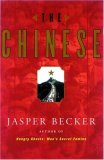Summary | Excerpt | Reviews | Readalikes | Genres & Themes | Author Bio

Critics' Opinion:
Readers' Opinion:
First Published:
Dec 2000, 304 pages
Paperback:
Feb 2002, 493 pages
Some experts, particularly economists, tend to argue that even if the reported facts, such as economic growth rates, are overstated they do at least represent a reliable trend. I doubt that. I suspect -- but can rarely demonstrate -- that many figures are simply made up to suit the propaganda needs of the day. It is this cloud of uncertainty surrounding so much in China that explains why so many books are written about the country.
Yet compared to most periods in its history, China may now be said to be more open and less mysterious than it has ever been. Even so, greater access has done nothing to clarify Western perceptions of China, which have ranged from wonder to disgust, from hope to fear -- one book on my shelves, written by another journalist in the 1930s, is entitled China: The Pity of It. In the past century and a half, since the restrictions on foreigners roaming around China were first lifted, Western visitors have been both fascinated and saddened by the romantic ruins of old Cathay, a dead but once glorious civilization like that of Greece, Rome or Egypt. Yet within the same period, the modernization of China has also led to a hysterical fear of China as a nuclear-armed global power bent on spreading Communist revolution. Even within the last twenty-five years writers have sincerely and convincingly portrayed China as either an oriental Utopia or a Communist hell. Between these extremes, visitors have dreamed of the vast profits to be won from selling to 'John Chinaman', a dream that still provides the dynamic for the West's relations with China.
By contrast, the Chinese state continues to feel threatened by outsiders seeking to win the loyalty of its subjects, just as it did over a century ago. Buddhism, Islam and Christianity have won many converts in China and continue to do so, but rarely with the support of the state.
China is big enough to permit many views. Precisely because the country eludes generalization, some observers have tended to grasp at straws, too willing to convert a trend into a prophecy -- many people are buying cars, so eventually half a billion will own cars; some groups want democracy, soon everyone will. And, perhaps frustrated by the sheer scale of the country and its apparently cyclical rather than linear history, many reporters tend to finish their tours saddened and disappointed. When Deng Xiaoping came to power in 1979 and spread the word that 'to get rich is glorious', the Chinese were presented as striving to learn how to become a capitalist democracy. Two decades later, it is clear that China is still far from becoming more like America or Europe.
This desire for change, and a belief that change for the better is possible, also exists within China -- the name 'New China' is given to innumerable buildings, roads and institutions -- and it dates from the latter half of the nineteenth century when repeated military defeats at the hands of more technologically advanced Western countries convinced reformers that China had lost its way and was in decline.
The same belief in the need for change fuelled the Chinese Communists' attempt under Mao Zedong to transform the country through a planned programme of social engineering on an unprecedented scale. Society would be altered, culture renewed and Chinese man remodelled to function in a new scientific, rational, model world. The state ran everything and the Party was 'always correct, great and glorious'. The attempt failed. China did not advance very far, and Mao's vision cost the lives of perhaps 75 million Chinese. It is therefore not surprising that a sense of failure also permeates the way in which the Chinese perceive themselves.
A new 'new' China has emerged since 1979 and in some areas the state has disengaged itself from its citizens' lives so that the new China seems to be functioning much like the old, pre-Communist China. Still, through all the upheavals and revolutions of the past century, China has held together, and the state and its bureaucrats continue to issue regulations and levy taxes.
Copyright © 2001 by Jasper Becker.





The House on Biscayne Bay
by Chanel Cleeton
As death stalks a gothic mansion in Miami, the lives of two women intertwine as the past and present collide.

The Flower Sisters
by Michelle Collins Anderson
From the new Fannie Flagg of the Ozarks, a richly-woven story of family, forgiveness, and reinvention.

The Funeral Cryer by Wenyan Lu
Debut novelist Wenyan Lu brings us this witty yet profound story about one woman's midlife reawakening in contemporary rural China.
Your guide toexceptional books
BookBrowse seeks out and recommends the best in contemporary fiction and nonfiction—books that not only engage and entertain but also deepen our understanding of ourselves and the world around us.